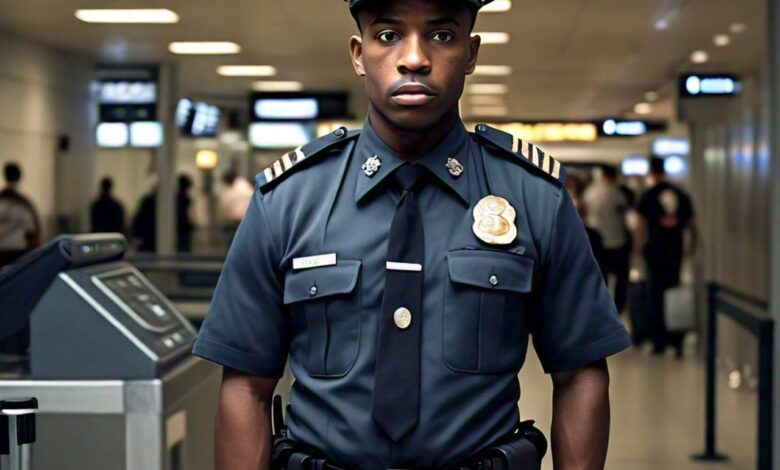The Essential Role of Security Guards in Airport Safety

The Essential Role of Security Guards in Airport Safety
In the complex environment of an airport, security guards play a critical role in ensuring the safety and security of passengers, staff, and the facility itself. Their duties span from passenger screening and baggage inspection to emergency management and cooperation with law enforcement. By working with cutting-edge technology and maintaining strict protocols, airport security guards help protect millions of people each day.
Passenger Screening and Baggage Inspection
One of the primary tasks of airport security personnel is screening passengers and inspecting their luggage. These professionals operate and monitor various devices, including X-ray machines and metal detectors, ensuring that prohibited items are not allowed on board. Beyond handling these machines, they must carefully interpret results and conduct physical searches when necessary, enhancing the overall security of the airport.
Their role becomes even more crucial as they are often the first to identify suspicious behavior in passengers. Trained in behavioral analysis, security guards are capable of identifying potential threats before they materialize, ensuring the safety of both passengers and flight crews.
Controlling Access and Securing Restricted Areas
In large facilities like airports, controlling access to restricted areas is a top priority. Security guards are responsible for monitoring sensitive zones such as runways, air traffic control towers, and baggage handling areas. By ensuring that only authorized personnel can access these areas, guards prevent security breaches and keep operations running smoothly.
This process involves more than just checking IDs; it also requires guards to recognize and respond to potential infiltration attempts, whether through false credentials or unauthorized personnel attempting to follow others into restricted zones. Access control is also critical in other sectors, such as corporate environments, where tight security measures are equally important.
Surveillance and Patrolling for Enhanced Security
Surveillance and patrolling are key components of maintaining airport security. Security guards monitor CCTV systems and conduct regular patrols throughout the airport, providing a visible deterrent to crime and ensuring that all areas remain secure. These patrols extend to public spaces, terminals, and restricted zones, allowing guards to respond quickly to any suspicious activity.
This strategy also plays a vital role in school security services, where ongoing monitoring and rapid response are essential to maintaining a safe environment for students and staff.
Emergency Response and Crisis Management
Security guards are trained to respond to emergencies, including medical incidents, fires, and potential terrorist threats. In a high-stress environment like an airport, their calm and quick thinking can be lifesaving. Guards are responsible for initiating evacuations, coordinating with emergency responders, and maintaining order during chaotic situations.
Their training covers a wide array of scenarios, from offering first aid to assisting passengers during sudden evacuations. This capability is part of a larger safety network that ensures passengers and staff are protected at all times, especially in high-traffic areas.
Supporting Law Enforcement and Airport Authorities
Security guards work closely with law enforcement and other airport authorities to maintain overall safety. Their duties often include detaining suspects, assisting in investigations, and reporting incidents. Whether responding to minor infractions or collaborating with federal agencies, security guards are an integral part of the broader security apparatus.
These guards also provide support in other industries, where their expertise ensures that security standards are consistently met.
Customer Assistance and Public Interaction
In addition to security responsibilities, airport security guards also serve a crucial role in assisting passengers. From offering directions to providing information about airport policies, they are often the first point of contact for travelers. Their presence not only improves customer satisfaction but also helps diffuse potentially tense situations, such as long security lines or lost baggage complaints.
Their ability to manage crowds and de-escalate conflicts is invaluable, contributing to both safety and the overall travel experience. This customer-facing role highlights the versatility of security guards, who must balance their enforcement duties with a commitment to providing excellent service.
Conclusion
The work of security guards in airports is multifaceted and essential to maintaining a secure environment. From airport security services to assisting law enforcement and handling emergencies, these professionals ensure that millions of passengers can travel safely every day. As airports grow more complex, the role of security guards will continue to evolve, but their importance in safeguarding travel will remain steadfast.





